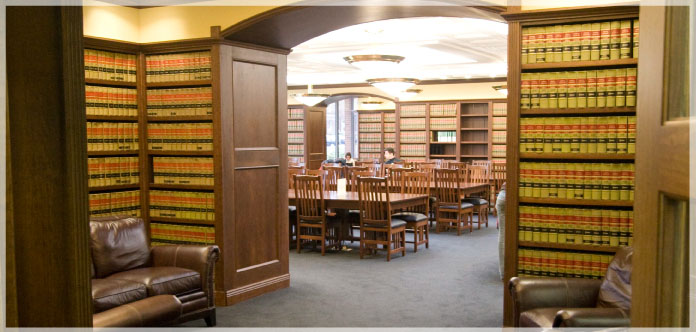How to Conduct Research in a Law Library

To say that conducting a legal research is tiresome will be an understatement. The outcome of a trial will hinge on the slightest of variation upon which a law can have an altogether different meaning. This poses a real challenge for lawyers who need to go through tons of case law and acts before finding the statute or precedent relevant to a case. The starting point for everyone will be law libraries, which have sheer volume of details on every legal and judicial decision which may come in handy for lawyers, attorneys and judges to make a final call based on previous precedents.
Instructions
-
1
Before conducting a search, it is important that you are well aware of the details of the law in question. If the case is related to child abuse, then you must not only know the basic laws applicable to this particular concern but must be able to incorporate the act. This will give you room to closely analyze all related laws rather than going through tons of information presented to you. Making a checklist will be a good option at the start.
-
2
While at a law library, it is important that you start by finding a cross reference. This will refer to any previous case, where similar laws have already been applied. Track any references, definitions which have previously been validated. This is a fairly complex process but completing it will ensure that half of the work has been accomplished.
-
3
Libraries will further have legislative histories which may provide additional references for your case. The key thing to note is whether they have amendments or updates related to your case. This way you can have a fair idea whether the law has been or can be interpreted to best suit your purposes.
-
4
If the information is too much to handle, then take help from a paralegal, whose main task is to assist lawyers by gathering relevant information about a particular case. In most instances, you will need a paralegal to handle most of the paperwork.
-
5
The role of law librarians has also changed, where they have been given increased responsibility in performing tasks for lawyers and attorneys. Law librarians are now well versed with every section of the library and may be of greater help. They can assist, conduct and produce all relevant material.







